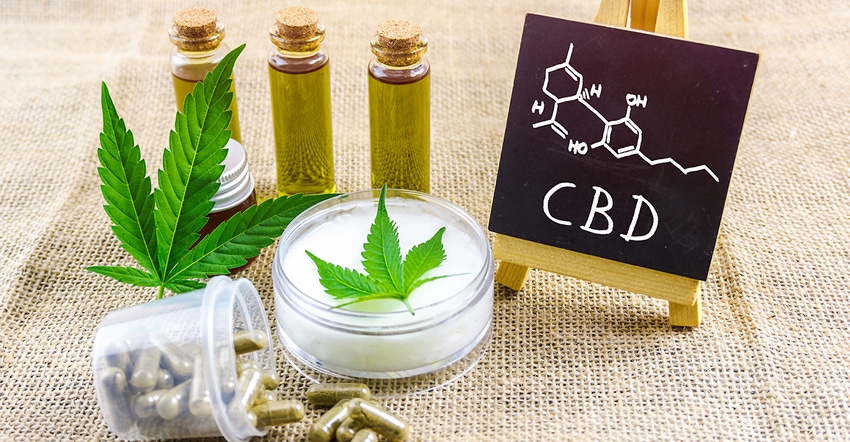In announcing new warning letter on CBD product disease claims, FDA suggested it is speeding up its search for a regulatory pathway for CBD in supplements.

A new warning letter from two federal agencies is focused on unsubstantiated disease claims made for CBD products, but it also suggested FDA is speeding up its work on a regulatory pathway for products containing CBD and other cannabis ingredients.
FDA and FTC jointly issued the warning letter to Naples, Florida-based Rooted Apothecary LLC, advising the company it was selling unapproved CBD products online with unsubstantiated claims the products treat teething pain and ear aches in infants, autism, attention-deficit/hyperactivity disorder (ADHD), Parkinson's and Alzheimer's disease, and other conditions or diseases. Further, FTC expressed concern the products violate the FTC Act by using efficacy claims not substantiated by competent and reliable scientific evidence.
The company did not immediately respond to INSIDER’s request for comment, nor had it issued a response online by press time.
"Cannabis and cannabis-derived compounds are subject to the same laws and requirements as FDA-regulated products that contain any other substance,” said Acting FDA Commissioner Ned Sharpless, M.D., in a press release. “We are working to protect Americans from companies marketing products with unsubstantiated claims that they prevent, diagnose, treat, or cure a number of diseases or conditions.”
Sharpless added the agency is especially concerned with companies marketing unproven CBD products for use in vulnerable populations like infants and children. The agency recently warned against the use of CBD products in women who are pregnant or breastfeeding due to potential negative effects such as low birthweight, premature birth and still birth.
“We've sent numerous warning letters that focus on matters of significant public health concern to CBD companies, and these actions should send a message to the broader market about complying with FDA requirements,” Sharplesss said, noting the agency intends to protect and promote public health through sound, science-based decisions while it examines a regulatory pathway for lawful marketing of cannabis products, including CBD.
In the letter to Rooted Apothecary, FDA reiterated its position that CBD products cannot be marketed as dietary supplements. The agency assured it is concerned about the proliferation of CBD products on the market touting a range of therapeutic and health claims.
FDA has only approved one CBD product: Epidiolex, which GW Pharmaceuticals markets to treat two rare, severe forms of epilepsy known as Dravet syndrome and Lennox-Gastaut syndrome.
Because CBD was first authorized for investigation as a new drug and the subject of clinical investigations that were instituted and made public, the ingredient cannot be marketed as a dietary supplement, according to FDA. However, the Food, Drug and Cosmetic Act (FDCA) allows the Secretary of the U.S. Department of Health and Human Services (HHS) to create an exception that would authorize the use of CBD in a supplement.
FDA has said it is exploring such a pathway for lawful non-drug CBD products, but initially warned the process could take years. Meanwhile, many CBD advocates have called on Congress to either pressure FDA to be quicker or to pass legislation approving such CBD products.
Throughout 2019, several senators sent letters to FDA, urging the agency to establish such a regulatory pathway and/or, in the meantime, formalize its enforcement discretion by way of guidance. Senate Majority Leader Mitch McConnell (R-Kentucky), who is widely considered responsible for decriminalizing hemp through the 2018 Farm Bill, inserted report language accompanying an appropriations bill that directs FDA to publish enforcement discretion within 120 days.
In announcing the joint warning letter, FDA suggested it is feeling the pressure to speed up its work on CBD’s regulatory status.
"The FDA is working quickly to further clarify our regulatory approach for products containing cannabis and cannabis-derived compounds like CBD while using all available resources to monitor the marketplace and protect public health by taking action as needed against companies," said FDA Principal Deputy Commissioner Amy Abernethy, M.D., Ph.D., in the press release. "We recognize that there is significant public interest in cannabis and cannabis-derived compounds; however, we must work together to fill in the knowledge gaps about the science, safety and quality of many of these products.”
About the Author(s)
You May Also Like






.png?width=800&auto=webp&quality=80&disable=upscale)